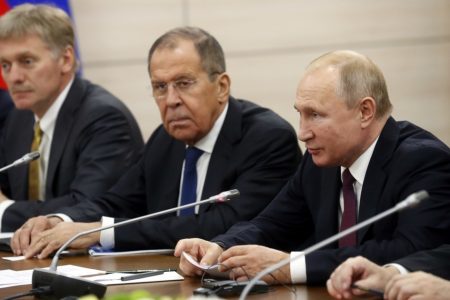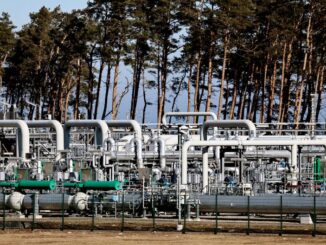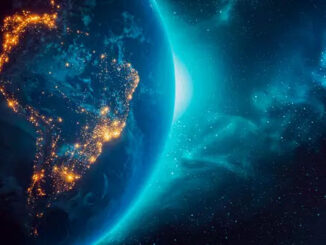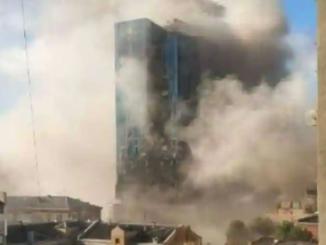
Russia regards itself to be at war due to the West’s intervention on Ukraine’s side, the Kremlin said on Friday (22 March), shifting the language it uses to describe the conflict in an apparent move to prepare Russians for a longer and harder struggle.
Kremlin spokesman Dmitry Peskov’s comments, first to the Russian publication Arguments and Facts and then to reporters on a conference call on Friday, may sound unremarkable to Ukrainian and Western ears.
But inside Russia, where people have been told for the past two years to refer to the war in Ukraine as a “special military operation” – a phrase designed to underline the initially limited nature of the conflict – they represent a departure and look like part of a shift to prepare people mentally for a conflict which may require more sacrifices from them.
“We are in a state of war. Yes, it started out as a special military operation, but as soon as this group was formed, when the collective West became a participant in this on the side of Ukraine, it became a war for us,” Peskov told Arguments and Facts.
“I am convinced of that. And everyone should understand this, for their internal motivation.”
He made his comments five days after President Vladimir Putin was re-elected for six more years and after what Kyiv said was Russia’s largest air strike on Ukrainian energy infrastructure. They appear to signal that Russia is digging in for an even longer standoff over Ukraine with the United States and its allies.
They also give the Russian authorities more leeway with their own people to announce decisions more commonly associated with a war such as a further mobilisation.
“Now it’s official: the SMO (Special Military Operation) is recognised as a war,” said Tatiana Stanovaya, founder of the R.Politik analysis firm.
“Of course, the SMO de facto became a war a long time ago But this is a certain psychological boundary, beyond which different requests can be made of both the population and the elites than during the SMO,” she said.
Peskov in subsequent remarks to reporters clarified that Russia’s actions in Ukraine were still legally qualified at home as “a special military operation” rather than as a war.
“But de facto it has become a war for us as the collective West more and more directly increases its level of involvement in the conflict,” he said.
Russian officials from Putin down have gradually started to use the word “war” more often, having long avoided it and discouraged others from using it – on pain of prosecution – as they initially sought to cast the decision to go into Ukraine as some kind of a swift and limited military intervention.
Having suffered serious battlefield losses and been pushed back in 2022 and 2023 before regaining the initiative, Russian officials have conceded that fighting is now set to go on for longer than initially thought, however, and that ambitious goals remain unfulfilled.
Mark Galeotti, author of several books on Putin and Russia, said Peskov’s comments sent a powerful signal to the Russian public.
“That ‘internal mobilisation’ is actually the key thing: the Kremlin’s demand that every Russian get into a wartime mindset, and realise there is now no middle ground between being a patriot and a traitor (as Putin defines these)” Galeotti wrote on the X social media network.
Peskov said that Russia must fully “liberate” its “new regions” to ensure people’s safety there, a reference to the four Ukrainian regions which Russia claimed to have annexed in 2022 but does not fully control.
Russia, he added, could not allow a state to exist on its borders that had shown itself ready to use any method to seize control of Crimea.
Kyiv says Russia’s annexation of the four regions is an illegal land grab and that it will not rest until every Russian soldier is ejected from its soil.
It says it is also determined to return the Black Sea peninsula of Crimea, which Russia took from it in 2014. Moscow, which has invested heavily in Crimea, the headquarters of Russia’s Black Sea Fleet, says the peninsula is part of Russia and that its status has been settled once and for all.



